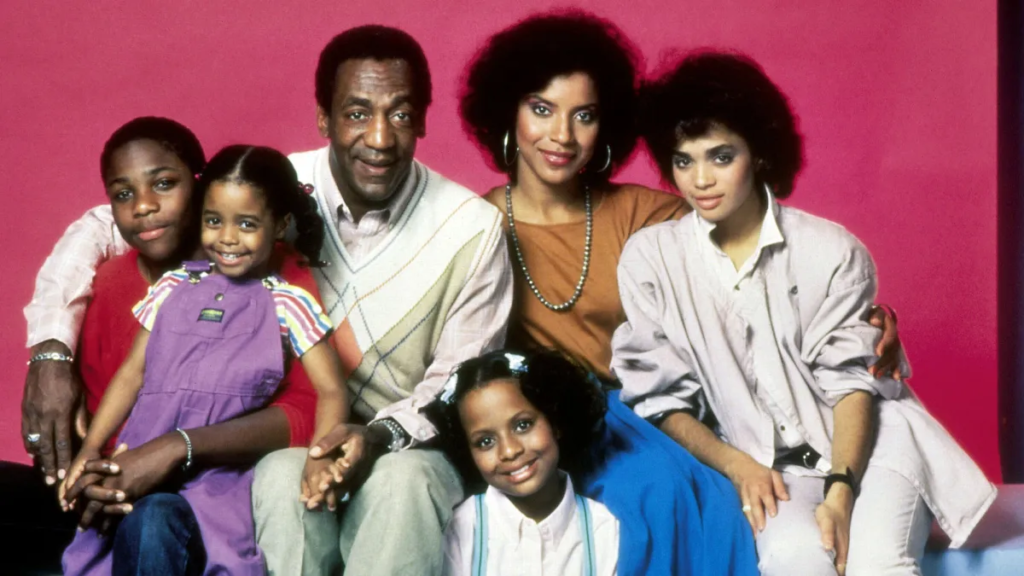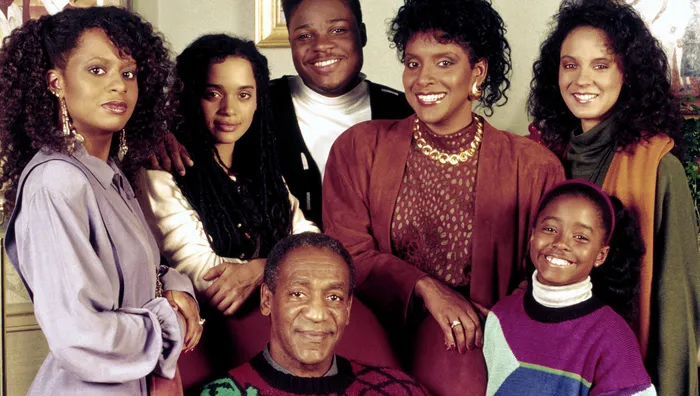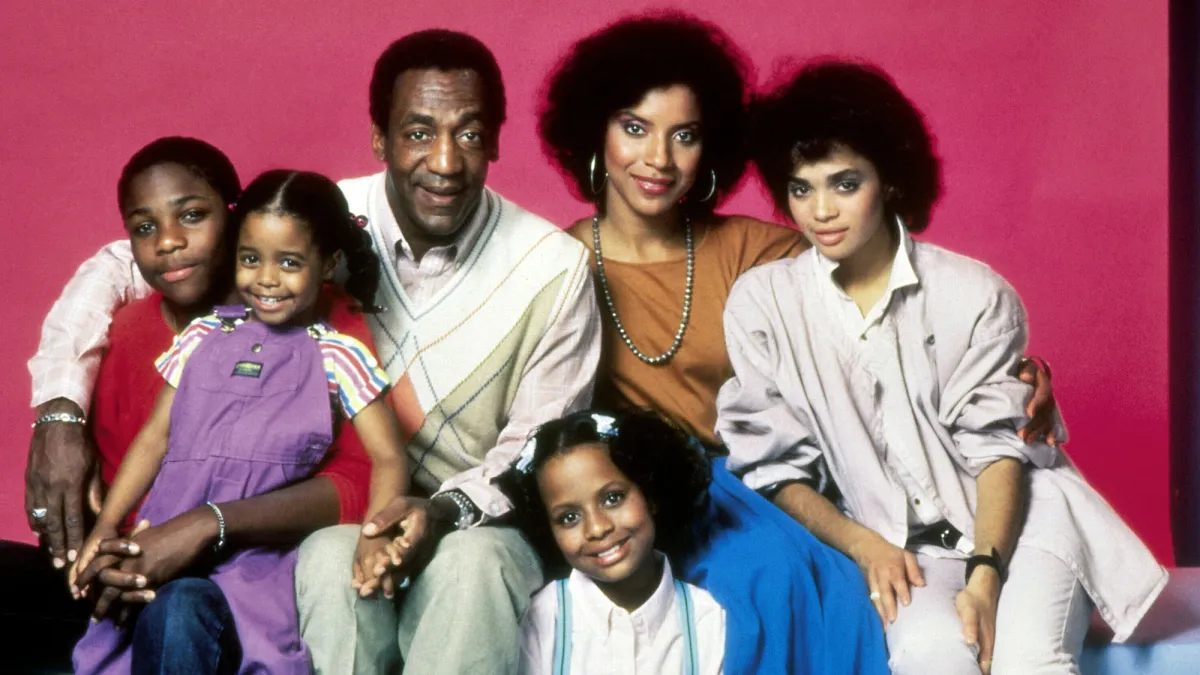When The Cosby Show premiered on September 20, 1984, it marked a transformative moment in American television history. Created by comedian Bill Cosby and writer Michael Leeson, the sitcom introduced viewers to the Huxtables, an upper-middle-class African American family living in Brooklyn, New York. Over its groundbreaking eight-season run, the show not only entertained millions but also challenged racial stereotypes, elevated African American representation on screen, and became a cultural phenomenon that transcended boundaries of race, class, and geography.
The Huxtables: Breaking Stereotypes with Humor and Heart

Before The Cosby Show, African American families were often portrayed through the lens of hardship, dysfunction, or poverty. Sitcoms like Good Times and Sanford and Son featured working-class characters dealing with economic adversity—important narratives in their own right, but ones that, over time, became the default representation of Black family life on screen. The Huxtables, however, offered something new: a highly educated, successful, and loving family navigating everyday life with warmth, humor, and relatability.
Cliff Huxtable, portrayed by Bill Cosby himself, was an obstetrician with a playful sense of humor and deep affection for his family. His wife, Clair Huxtable, played by Phylicia Rashad, was a brilliant, no-nonsense attorney who seamlessly balanced career and motherhood. Their five children—Sondra, Denise, Theo, Vanessa, and Rudy—each had distinct personalities, dreams, and challenges, allowing the show to explore a variety of themes across different ages and perspectives.
What made the Huxtables revolutionary was their normalcy. They weren’t extraordinary because they were Black—they were extraordinary because they were relatable, loving, aspirational, and human. They talked about homework, career goals, dating, sibling rivalry, and college—all in a way that felt both universal and grounded in cultural specificity. The Huxtables were a breath of fresh air, showcasing that African American families could—and should—be depicted in multidimensional, empowered, and successful roles.
A Cultural Shift in Representation
The Cosby Show arrived during a period when American television was largely dominated by white, middle-class family narratives. The presence of an affluent Black family on primetime TV challenged longstanding media stereotypes and provided a counter-narrative to prevailing depictions of African Americans. It proved to audiences and networks alike that diverse stories could attract widespread viewership and generate massive cultural impact.
Importantly, The Cosby Show didn’t ignore the family’s Black identity—it embraced it. African American culture was woven into the fabric of the show through its music, art, fashion, and family values. Jazz played a major role in the show’s aesthetic and identity, with artists like Dizzy Gillespie and B.B. King making guest appearances. The show regularly referenced Black historical figures, celebrated historically Black colleges and universities (HBCUs), and uplifted cultural pride in subtle but meaningful ways.
This intentional inclusion of Black culture in a mainstream show helped normalize diversity in American households. Families of all backgrounds saw themselves reflected in the Huxtables—not just because of race, but because of the universal themes of love, discipline, laughter, and learning.
Tackling Social Issues with Grace

Although The Cosby Show was primarily a comedy, it did not shy away from addressing important social issues. Its episodes often carried “teachable moments” where Cliff and Clair would guide their children through challenges involving peer pressure, underachievement, respect, integrity, and responsibility. These scenes were rarely heavy-handed. Instead, they blended humor with wisdom, often leading to heartfelt conversations that resonated deeply with audiences.
One iconic storyline involved Theo struggling in school and Cliff giving him a tough-love lesson on life and finances, using Monopoly money and household chores to demonstrate the value of education and hard work. Another storyline tackled learning disabilities, as Theo was later diagnosed with dyslexia—a condition Bill Cosby’s real-life son struggled with—offering visibility and empathy to viewers facing similar experiences.
By addressing real-life topics in a family-friendly, comedic format, The Cosby Show contributed to the social consciousness of its time, proving that comedy could coexist with meaningful storytelling.
Pop Culture Legacy
The Cosby Show wasn’t just a ratings juggernaut—it was a cornerstone of 1980s and early 1990s pop culture. From Cliff Huxtable’s brightly colored sweaters and quirky expressions to the show’s legendary opening sequences (which changed each season but always featured a vibrant musical number), the show established a distinct identity that fans still remember fondly.
The series inspired a generation of Black actors, writers, and producers. It paved the way for future family-centric sitcoms like The Fresh Prince of Bel-Air, Family Matters, My Wife and Kids, and Black-ish, all of which owe some of their success to the trail blazed by the Huxtables. Its format, tone, and structure became a template for sitcoms that blended humor with heart.
Even after its original run ended in 1992, The Cosby Show continued to air in syndication for years, introducing new audiences to its timeless storytelling. Its influence can still be seen in media today, whether in homages, references, or the continued relevance of its family-oriented themes.
Critical Acclaim and Accolades

During its heyday, The Cosby Show dominated the ratings. It was the number one show in America for five consecutive seasons and remained in the top 20 throughout most of its run. It received multiple Emmy Awards, Golden Globes, and NAACP Image Awards, along with praise from critics who recognized its originality, warmth, and cultural significance.
One of the show’s most enduring achievements was proving that Black-led programming could be commercially successful and critically acclaimed. Its widespread appeal across demographics demonstrated that representation was not only important but also marketable—a lesson that would reshape Hollywood’s approach to storytelling in the years to come.
A Complicated Legacy
In recent years, the legacy of The Cosby Show has come under scrutiny due to the sexual assault allegations and subsequent conviction of Bill Cosby. These developments have led to complex discussions around separating the art from the artist. For many, the revelations taint the legacy of a show that was once seen as a beacon of progress and positivity.
Yet, despite the controversy surrounding its creator, the cultural impact of The Cosby Show remains significant. Its contribution to positive representation, its role in transforming television norms, and its lasting influence on pop culture and media cannot be ignored. Scholars, fans, and critics alike continue to wrestle with how to honor the groundbreaking nature of the show while acknowledging the harm caused by Cosby’s actions.
Conclusion
The Cosby Show was more than just a sitcom—it was a cultural revolution that redefined television and reshaped the narrative surrounding African American families. Through humor, heart, and groundbreaking storytelling, it challenged stereotypes, opened doors, and inspired millions. While its legacy is now complicated by the personal actions of its creator, the show’s impact on media representation and cultural consciousness remains enduring. In the history of American television, few shows have left a mark as deep and transformative as The Cosby Show.
Also Read: Sheinelle Jones: A Versatile Journalist and Beloved TV Personality






